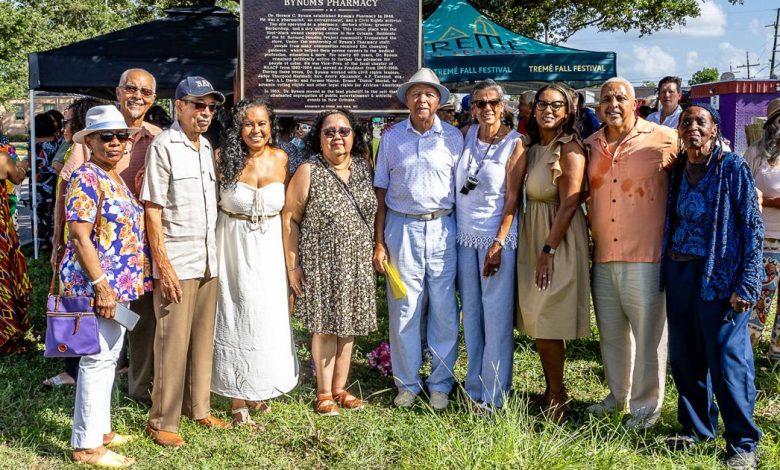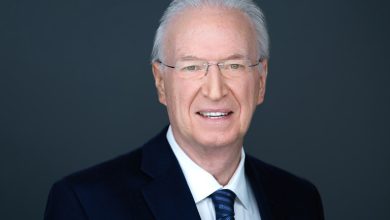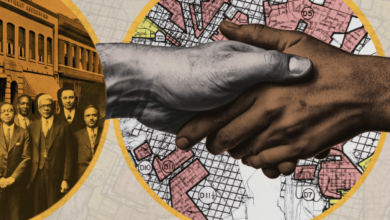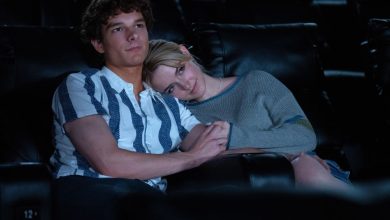Bynum’s Pharmacy in New Orleans now a state historic site | Entertainment/Life

Nearly 80 years after the opening of a local pharmacy gave Black residents of New Orleans’ St. Bernard neighborhood better access to medicine and healthcare, officials honored the business and its founder by adding the site to the state’s Historic Marker Registry.
Bynum Pharmacy, opened in 1947 by pharmacist and civil rights leader Horace C. Bynum Sr., was formally recognized Sunday as community leaders and relatives unveiled the new marker at 3840 St. Bernard Ave.
“Mr. Bynum was a trailblazer, not only in healthcare but in creating economic opportunities for the Black community,” Liz Sherman, executive director of the Pharmacy Museum, said during the ceremony.
The event was attended by several members of the Bynum family — Adolph Bynum Sr., Adolph Bynum Jr., and Saran Bynum — along with city council members Eugene Green and Oliver Thomas and Judge Arthur Hunter.
The pharmacy, which was in operation until Hurricane Katrina, served as a vital resource during segregation. The new recognition, which family members worked for the last year to get through the governor’s office, stands as remembrance of the community sanctuary that once stood on the now empty lot.
For Saran Bynum, the monument is also a proud symbol of her grandfather’s impact as an activist.
“He was a silent hero to me. He never boasted about it,” she said.

Bynum’s Pharmacy, a longtime Black business in St. Bernard that closed in Hurricane Katrina, was honored with a historic marker.
Who was Horace Bynum?
Originally born in Monroe, Bynum spent most of his life in New Orleans, graduating from both McDonogh No. 35 High School and Xavier University, where he earned a degree in pharmacy in 1936 as one of the program’s earliest graduates.
Back then, Black pharmacists weren’t allowed to work in white pharmacies, so Bynum was forced to take a job as a post office worker that paid 65 cents an hour.
When he finally opened his own shop years later, the drugstore joined part of the city’s first Black-owned strip shopping center in the St. Bernard neighborhood.
“He didn’t let the oppression keep him from doing what he needed to do for his own people,” Saran Bynum said.
Bynum’s business endeavors didn’t stop there. He would go on two other pharmacies, one Uptown and one in the Desire neighborhood, and joined his sons to build over 50 homes in what is now Village de L’Est.
He also worked tirelessly as a civil rights leader, serving as the local NAACP chapter president and collaborating with trailblazers like Judge Thurgood Marshall, Rev. Avery Alexander, A.P. Tureaud, Rev. A.L. Davis, and Mayor Ernest “Dutch” Morial.

Horace Bynum, a New Orleans civil rights leader and pharmacist, shakes Dr. Martin Luther King Jr.’s hand in this historic photo.
The pharmacy’s legacy
Throughout the decades, Bynum’s pharmacy grew to be more than just a stop for medicine. For neighbors, it was gathering ground — a place to meet up with friends and get practical healthcare advice.
Saran Bynum, who worked at the pharmacy as a teen, fondly recalled the pre-school year rush of little girls crowding her grandfather’s shop to purchase ribbons for their hair. Another ever popular item, she said, was Bynum’s “goose grease and honey,” a homemade cold remedy.

Horace Bynum opened Bynum’s Pharmacy in the St. Bernard area of New Orleans in 1947.
Bynum’s pharmacies were forced to closed in August of 2005 after sustaining significant damage during Hurricane Katrina.
Though they were never rebuilt, the drugstores’ impact on the Black community endures, now marked for years to come.




